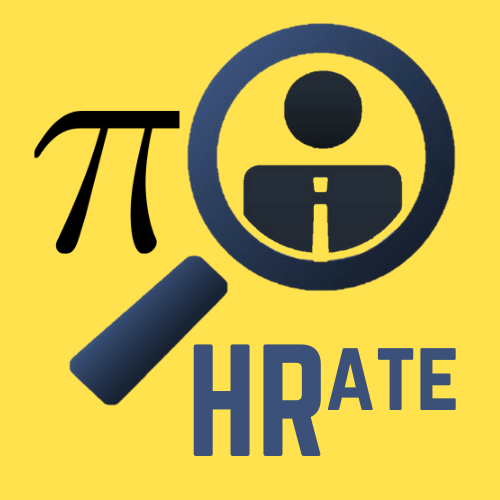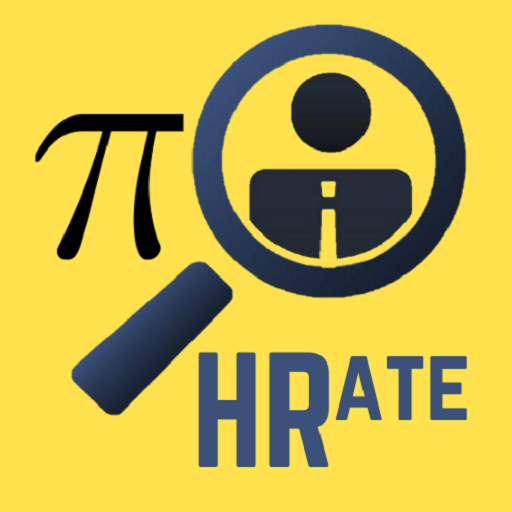Perform better with ChatGPT as your AI Recruiting Assistant

An AI Recruiting Assistant based on chatGPT is a technology-driven tool designed to streamline and enhance the recruiting process by leveraging artificial intelligence (AI) capabilities. This type of assistant can be used by recruiters and hiring managers to automate various aspects of the recruitment lifecycle.
piHRate’s AI Recruiting Assistant
Recruiters and talent sourcers can leverage AI Recruiting assistant based on chatGPT to enhance their workflow and improve communication with candidates.

An AI Recruiting Assistant serves as a revolutionary ally in the talent acquisition domain, revolutionizing how organizations identify, attract, and retain top talent. By harnessing the power of artificial intelligence, this advanced tool empowers recruiters and hiring managers to transcend the limitations of traditional recruitment methods. Its multifaceted capabilities extend across the recruitment lifecycle, automating routine tasks, reducing time-to-hire, and augmenting the decision-making process. From the initial stages of resume screening to the final steps of onboarding, the AI Recruiting Assistant brings efficiency, precision, and innovation to every facet of the hiring journey.
Recruiters and hiring managers can leverage the AI Recruiting Assistant as a strategic partner, allowing them to focus on high-value tasks that require human intuition and expertise. The automation of routine processes, such as resume parsing, candidate screening, and interview scheduling, frees up valuable time for recruiters to engage in more personalized interactions with candidates and strategize on attracting diverse and high-quality talent. This synergy between human and AI capabilities not only accelerates the recruitment timeline but also enhances the overall candidate experience, fostering a positive employer brand that resonates with top-tier professionals.
The adaptive nature of the AI Recruiting Assistant positions it as a dynamic tool that evolves alongside the ever-changing demands of the job market. Its machine learning capabilities enable continuous improvement, learning from past interactions, and refining its understanding of industry-specific nuances. As recruiters and hiring managers provide feedback and fine-tune the system, the AI Recruiting Assistant becomes increasingly adept at identifying patterns, predicting candidate success, and offering data-driven insights. In this way, the assistant not only optimizes the current recruitment process but also remains an agile and future-ready solution in the rapidly evolving landscape of talent acquisition.
Resume Screening and Candidate Matching
In the realm of recruitment, the utilization of artificial intelligence, such as AI Recruiting Assistant, has revolutionized the traditional approach to resume screening and candidate matching. Recruiters and hiring professionals can streamline their workflow by inputting a job description or key skills along with the candidate’s resume. Once armed with this information, they can leverage chatGPT to perform an insightful analysis of the candidate’s qualifications against the specified job requirements. By doing so, recruiters can extract valuable insights into the candidate’s skill set, experience, and relevance to the position, facilitating a more efficient and informed decision-making process.
The practical usage of AI Recruiting Assistant in this context extends beyond mere resume parsing. Hiring professionals can engage the AI in dynamic conversations, posing targeted inquiries about the candidate’s suitability for specific roles. Through natural language interactions, recruiters can delve deeper into the nuances of a candidate’s background, gaining a comprehensive understanding of their professional strengths and potential areas of contribution to the organization. This personalized approach to candidate matching not only enhances the accuracy of the selection process but also enables recruiters to identify individuals whose unique skills align seamlessly with the demands of the role, thereby fostering a more precise and effective talent acquisition strategy.
Moreover, the integration of chatGPT in resume screening and candidate matching introduces an element of scalability and consistency in the recruitment process. The AI’s ability to swiftly analyze numerous resumes against predefined criteria ensures that recruiters can manage a high volume of applications without compromising the quality of their evaluations. As a result, the technology acts as a force multiplier, allowing recruitment teams to focus on strategic decision-making and candidate engagement while relying on AI Recruiting Assistant for the systematic and thorough assessment of candidate profiles.
Candidate Engagement
Candidate engagement is a pivotal aspect of the recruitment process, and leveraging AI Recruiting Assistant to interact with candidates in a personalized and dynamic manner can significantly enhance the overall candidate experience. By inputting candidate information and application status, organizations can use chatGPT to engage candidates in natural conversations, providing updates on the hiring process and guiding them through the next steps.
The practical usage of AI Recruiting Assistant in candidate engagement involves initiating conversations with candidates based on the information available. Recruiters can input details such as the candidate’s name, application status, and relevant background information, allowing chatGPT to generate context-aware and personalized messages. This approach enables recruiters to engage candidates in a more human-like and conversational manner, creating a positive and responsive communication channel.
AI Recruiting Assistant can also be utilized to provide real-time updates on the hiring process, application status, and any pertinent information candidates might seek. Recruiters can input queries about the candidate’s availability for interviews, offer details, or additional documentation, and AI Recruiting Assistant can respond with clear and informative messages. This proactive communication helps keep candidates informed, reducing uncertainty and contributing to an overall positive candidate experience.
Moreover, by integrating chatGPT into candidate engagement, organizations can scale their communication efforts efficiently. The AI can handle routine queries, provide standardized updates, and answer frequently asked questions, allowing recruiters to focus on more complex and strategic aspects of the recruitment process. This collaboration between human recruiters and AI-driven engagement contributes to a seamless and personalized candidate journey, ultimately fostering a strong employer brand and increasing the likelihood of attracting and retaining top talent.
Research and Market Intelligence
In the fast-paced and dynamic landscape of business, staying well-informed about industry trends and competitor activities is paramount for strategic decision-making. AI Recruiting Assistant proves to be an invaluable asset in the realm of research and market intelligence when armed with industry-specific questions. Recipients of this AI-driven information can input queries about their sector or competitors, setting the stage for an agile and efficient exploration of market dynamics. This enables organizations to not only keep pace with the latest developments in their industry but also gain a competitive edge through swift access to pertinent information.
The practical usage of chatGPT in this context extends to tasking the AI with comprehensive research on market trends and competitor insights. By inputting key questions, businesses can leverage AI Recruiting Assistant’s natural language processing capabilities to extract relevant and up-to-date information from diverse sources. This rapid synthesis of data empowers decision-makers with quick answers to intricate industry-related queries, facilitating a proactive and informed approach to strategy development. Whether exploring emerging technologies, monitoring competitor product launches, or analyzing consumer sentiment, AI Recruiting Assistant serves as a versatile tool for acquiring actionable market intelligence.
Furthermore, AI Recruiting Assistant’s role in research and market intelligence aligns seamlessly with the need for agility in today’s business environment. The AI’s ability to swiftly sift through vast amounts of information ensures that organizations can adapt to market changes and make data-driven decisions in near real-time. This not only enhances the overall strategic planning process but also positions businesses to be more responsive to shifts in consumer behavior, regulatory landscapes, and emerging opportunities. As a result, chatGPT becomes a catalyst for innovation and competitiveness by providing a rapid and reliable conduit to the ever-evolving pulse of the market.
Scripted Interactions
In the realm of human resources and talent acquisition, scripted interactions play a pivotal role in shaping the initial stages of candidate engagement. By inputting common scripts used in these interactions, recruiters can harness the power of chatGPT to streamline and enhance the consistency of their communication efforts. Training AI Recruiting Assistant to handle scripted conversations not only ensures that responses align with the organization’s messaging and values but also facilitates a more standardized and professional interaction with candidates. This utilization of AI-driven scripting enables recruiters to set a positive tone from the outset, fostering a cohesive and polished candidate experience.
The practical application of AI Recruiting Assistant in scripted interactions extends to customization based on specific needs. Recruiters can tailor the AI’s responses to align with the unique requirements of different roles, departments, or organizational cultures. This adaptability ensures that scripted conversations remain contextually relevant and resonate effectively with diverse candidate profiles. Whether it’s providing information about the company culture, outlining the recruitment process, or addressing frequently asked questions, AI Recruiting Assistant serves as a versatile tool that can be fine-tuned to meet the nuanced needs of specific recruitment scenarios.
Moreover, the integration of AI Recruiting Assistant in scripted interactions contributes to efficiency and time savings in the recruitment process. Recruiters can focus on refining and updating script templates, while AI Recruiting Assistant takes on the role of delivering these messages consistently across various communication channels. This not only elevates the professionalism of initial candidate interactions but also allows recruiters to allocate more time to strategic aspects of the hiring process, such as candidate evaluation and relationship building. Ultimately, AI Recruiting Assistant becomes a valuable ally in ensuring that scripted interactions are not only well-crafted but also adaptive to the evolving dynamics of talent acquisition.
Learning and Development
In the ever-evolving landscape of talent acquisition, learning and development are essential components for staying abreast of industry trends, best practices, and innovative strategies. By inputting training materials and resources, organizations can harness the capabilities of chatGPT to transform the way recruiters access information and engage in continuous professional development. AI Recruiting Assistant can be tasked with the responsibility of providing learning resources for recruiters, offering a dynamic and responsive platform for accessing up-to-date information on recruitment methodologies, industry insights, and evolving HR practices.
The usage of AI Recruiting Assistant in learning and development extends beyond being a static repository of information. Recruiters can leverage AI Recruiting Assistant as a conversational tool to seek clarification, deepen their understanding of specific concepts, or even explore emerging trends in the recruitment landscape. This interactive approach enhances the learning experience, allowing recruiters to engage in dynamic conversations and receive personalized insights that cater to their specific queries and interests. As a result, AI Recruiting Assistant becomes not just a source of information but a collaborative learning companion, contributing to the continuous growth and expertise of recruitment professionals.
Furthermore, the integration of AI Recruiting Assistant in learning and development initiatives promotes efficiency and accessibility. Recruiters can access learning resources on-demand, eliminating the constraints of time and location. This enables a more flexible and personalized approach to professional development, empowering recruiters to enhance their skills at their own pace. Whether it’s exploring new sourcing techniques, understanding diversity and inclusion strategies, or staying informed about legal and compliance updates, AI Recruiting Assistant serves as a versatile tool that adapts to the diverse and evolving needs of recruiters committed to continuous improvement and lifelong learning.
Diversity and Inclusion Support
In the pursuit of fostering a diverse and inclusive workplace, organizations are increasingly turning to technology to support their efforts. By inputting inquiries related to diversity initiatives, companies can leverage chatGPT as a powerful tool to communicate and reinforce their commitment to diversity and inclusion. AI Recruiting Assistant becomes a means to articulate and disseminate information regarding company diversity policies, thereby serving as a proactive force in promoting an inclusive workplace culture.
The usage of AI Recruiting Assistant in diversity and inclusion support involves not only conveying policies but also ensuring that responses actively promote diversity and inclusion. Recruiters can employ AI Recruiting Assistant to craft messages that resonate with the organization’s values, emphasizing the importance of diversity in hiring processes, workplace practices, and overall company ethos. This dynamic communication enables organizations to go beyond mere policy dissemination and actively engage with employees, candidates, and stakeholders on the critical subject of diversity.
Moreover, AI Recruiting Assistant plays a role in fostering a more inclusive environment by offering guidance on inclusive language, bias mitigation, and best practices in recruitment. By incorporating these elements into responses, the AI-driven tool becomes a catalyst for embedding diversity considerations into every facet of the talent acquisition process. The goal is not only to communicate diversity policies but also to inspire a cultural shift where diversity and inclusion are integral to the organizational DNA. In this way, AI Recruiting Assistant becomes a strategic partner in promoting a workplace that values and celebrates differences, creating a more vibrant, innovative, and equitable professional community.
User Training and Support
User training and support are crucial components of integrating AI Recruiting Assistant into a recruiter’s toolkit effectively. By inputting queries about using chatGPT effectively, organizations can optimize the AI’s potential as a supportive tool for recruiters. AI Recruiting Assistant can be trained to assist recruiters in understanding its capabilities, providing insights into how to navigate and leverage the technology to enhance their workflow.
The usage of AI Recruiting Assistant in user training involves creating a conversational interface where recruiters can ask specific questions about the AI’s functionalities and receive detailed responses. This approach allows recruiters to gain a deeper understanding of how to effectively integrate AI Recruiting Assistant into their daily tasks, from resume screening to candidate engagement. By tailoring responses to user queries, AI Recruiting Assistant becomes an interactive guide, offering real-time assistance and contributing to the seamless adoption of the AI within the recruitment team.
Furthermore, the role of AI Recruiting Assistant extends to providing support for any questions or issues that recruiters may encounter. Whether it’s troubleshooting technical difficulties, clarifying ambiguous responses, or addressing concerns about the ethical use of AI in recruitment, AI Recruiting Assistant serves as a reliable resource for user support. The AI can offer guidance, share best practices, and assist in resolving challenges, fostering a collaborative relationship between recruiters and the technology.
Ultimately, effective user training and support ensure that recruiters feel empowered to make the most of AI Recruiting Assistant’s capabilities. This approach not only contributes to the successful implementation of AI in the recruitment process but also establishes a foundation for ongoing collaboration, where recruiters and AI Recruiting Assistant work in tandem to optimize efficiency, accuracy, and overall effectiveness in talent acquisition.
Feedback and Improvement
In the dynamic landscape of recruitment, continuous improvement is vital for the effective integration of chatGPT into the workflow. By inputting feedback from recruiters and candidates, organizations can leverage AI Recruiting Assistant to actively gather insights on its performance. AI Recruiting Assistant becomes a valuable tool for collecting nuanced feedback, offering a direct line of communication for users to share their experiences and suggestions.
The usage of AI Recruiting Assistant in feedback and improvement initiatives involves creating a conversational platform where recruiters and candidates can provide their perspectives on the AI’s performance. This two-way interaction allows for a comprehensive understanding of the strengths and limitations of AI Recruiting Assistant in the context of talent acquisition. By capturing feedback on issues such as accuracy in resume screening, the effectiveness of scripted interactions, or the overall user experience, organizations can make informed decisions to refine and enhance the AI’s capabilities.
Furthermore, AI Recruiting Assistant can be instrumental in fostering a culture of iterative improvement. Organizations can task the AI with analyzing patterns in the feedback received, identifying common themes, and suggesting areas for enhancement. This iterative process ensures that AI Recruiting Assistant evolves in tandem with the changing needs of recruiters and candidates. Regular updates and refinements based on user input contribute to the AI’s adaptability and effectiveness in supporting the recruitment process over time.
Ultimately, the integration of AI Recruiting Assistant into the feedback and improvement loop not only facilitates transparency in the use of AI but also demonstrates a commitment to responsive and user-centric development. By actively engaging with feedback gathered through AI Recruiting Assistant, organizations can cultivate a culture of continuous learning and enhancement, ensuring that the AI remains a valuable and evolving asset in the recruitment toolkit.
Scripted Outreach
Scripted outreach is a critical aspect of talent acquisition, and leveraging chatGPT for drafting and reviewing outreach messages adds a valuable layer of efficiency and effectiveness to the process. By inputting outreach messages for potential candidates, organizations can use AI Recruiting Assistant to refine and enhance their communication strategies, ensuring that messages are compelling, personalized, and align with the company’s branding and values.
The practical usage of AI Recruiting Assistant in scripted outreach involves engaging the AI in the iterative process of drafting and refining messages. Recruiters can input initial drafts and queries, seeking suggestions and improvements from AI Recruiting Assistant. The AI can offer insights on language, tone, and content, ensuring that outreach messages resonate with the target audience and maximize the likelihood of positive responses.
Moreover, AI Recruiting Assistant can be a valuable resource for customizing outreach messages based on the specific needs of different roles or departments. Recruiters can input details about the position, desired qualifications, and key selling points, and then collaborate with AI Recruiting Assistant to tailor messages for diverse candidate profiles. This dynamic approach ensures that outreach efforts are not one-size-fits-all but are instead adapted to the nuances of various positions and candidate preferences.
By incorporating AI Recruiting Assistant into the scripted outreach process, organizations can benefit from its natural language processing capabilities to ensure clarity, coherence, and relevance in communication. This collaboration between human recruiters and AI results in well-crafted, persuasive outreach messages that engage potential candidates effectively and contribute to the overall success of talent sourcing initiatives.
Market Insights
In the fast-paced and ever-changing business landscape, staying informed about industry trends and candidate preferences is essential for strategic decision-making. By inputting industry-related questions, organizations can leverage chatGPT to gather market insights efficiently. AI Recruiting Assistant becomes a versatile tool for staying abreast of market trends, emerging technologies, and shifts in candidate expectations.
The usage of AI Recruiting Assistant in acquiring market insights involves tasking the AI with the responsibility of researching and synthesizing information on industry trends and candidate preferences. Recruiters and decision-makers can pose questions about the latest developments, competitor activities, or emerging technologies within their sector. AI Recruiting Assistant’s natural language processing capabilities enable it to sift through vast amounts of data, providing quick and relevant insights that contribute to a comprehensive understanding of the industry landscape.
Furthermore, AI Recruiting Assistant can assist organizations in monitoring candidate preferences and expectations. By querying the AI about the factors influencing candidate choices, such as work culture, benefits, or remote work policies, organizations can adapt their talent acquisition strategies to align with evolving trends. This proactive approach ensures that organizations remain competitive in attracting and retaining top talent.
Incorporating AI Recruiting Assistant into the process of gathering market insights not only streamlines the research process but also enables organizations to adapt quickly to changing market dynamics. By staying informed about industry trends and candidate preferences, organizations can make data-driven decisions, identify new opportunities, and maintain a competitive edge in the talent acquisition landscape.
By integrating AI Recruiting Assistant into their workflow, recruiters and talent sourcers can save time, enhance candidate interactions, and streamline various aspects of the recruitment process. It’s essential to use the tool ethically, continuously monitor its performance, and provide necessary human oversight for critical decisions.



